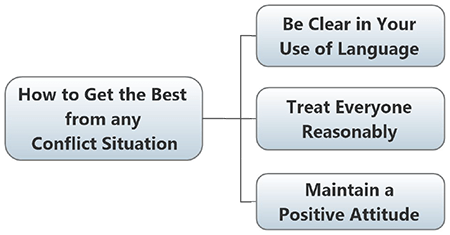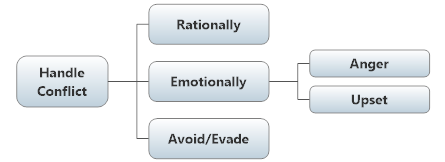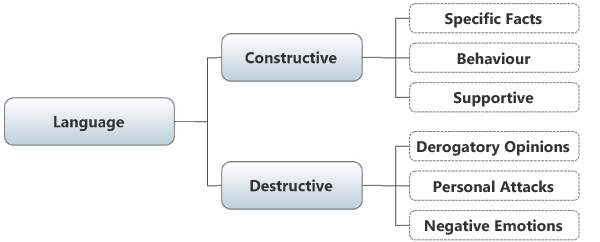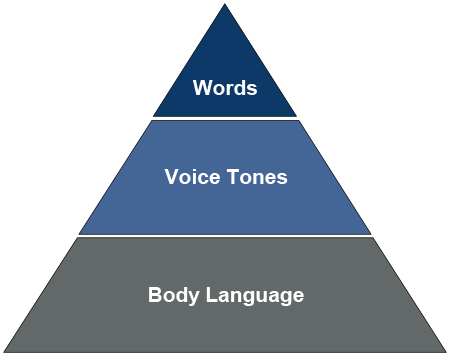What is Conflict Management Training?

This conflict management training is designed to help you prevent unnecessary conflicts, and to quickly deal with those conflicts that do occur.
We show you how poor communication leads to misunderstandings and conflict and how we can reduce the number of conflicts by improving the quality of communications.
But when conflicts occur, or if we have to manage instances of unacceptable behaviour, or poor performance, then we must act quickly, because poorly managed conflicts can grow to costly disputes.
You learn how to manage conflicts in a professional, objective and expert manner and how to avoid the negative emotions commonly associated with conflicts.
When you finish this course, you will know exactly how to minimise and quickly resolve conflicts.
Contact Us Today
If you want to know more about this course, or any other Management Training Courses, or their suitability for you or a colleague, call us on 020 3856 3037 or make an enquiry online.
Customer Reviews
ASDA
Niger Delta Development Commission
Conflict Management Training Availability, Pricing and Course Dates
If you have any questions, please phone us (020 3856 3037) or send us a message.
Live Online Virtual Training
- Live Online Conflict Management Virtual Training delivered via Zoom or Microsoft Teams
- Easy to join - all you need is a laptop or tablet with a Webcam
- Learn the same skills as a face-to-face session, but from the comfort of your own home (or office!)
Open Course (Face-to-Face)
(Early Bird Offers Available)
- Delivered at venues around the UK
- Open Course Timings are: 9am - 4.30pm
- If you arrive earlier than 9am, there is coffee / tea waiting for you.
Bespoke Training (In-House or Live Online)
(International Price Varies)
In-House training has been designed to provide a similar experience to our open courses, however we can tailor the content to fit your specific needs.
Plus, travel and hotel accommodation for trainer if needed (Premier Inn type: not the Hilton!)
We are able to train in your timezone.
All our training includes:
- A full day of quality training, delivered by an experienced trainer
- CPD-endorsed training course: Total of 6 CPD training hours (9am - 4.30pm), plus an additional 2-3 via post-course online independent learning.
- Full digital interactive course notes
- Training certificate
- Access to additional free training material after the course via our post-course portal
- 3 months free telephone coaching: Whilst you are implementing what you have learned, if you need to, you can contact us for support and guidance
Conflict Management Training Course Overview
The course is split into two parts: Morning and afternoon.
- AM Managing conflicts based on disagreements of ideas and opinions.
- PM Resolving conflicts based upon poor performance issues or unacceptable behaviour.
The morning session covers how to resolve conflicts based on a clash of ideas, opinions and personalities. We learn how to improve the quality of our communication and how to avoid conflicts caused by misunderstandings. We show you how to present your thoughts in a clear, rational and positive manner. We learn how to handle negativity and cynicism, and social bullying. We learn how to de-escalate situations; how to avoid losing your temper and how to influence situations with positive suggestions, being sure to always leave every interaction on a positive note.
The afternoon session deals with conflicts arising from poor performance, or unacceptable behaviour. We learn why, when in conflict we use objective factual language, not subjective emotionalised language. We learn how to deal with conflicts rationally, not emotionally. How to objectify the situation using facts, rather than feelings. Distinguish reasons from excuses and then find a solution to the conflict and gain their commitment. We discuss how body language, voice tones and timing affect conflict, and how to get it right. We learn when to compromise and when to “stand your ground”. We will also cover how to be assertive without ever being aggressive. And we finish on how to use appreciation and praise to reinforce correct behaviours.
When you finish this course, you will know how to effectively handle conflicts.
Learning Outcomes:
- How to settle workplace conflict and quickly restore harmony
- How to use reason and logic, rather than anger and emotion, when handling conflict
- Be able to objectify the situation and quickly find solutions, without emotionalising
- In conflict, know when to compromise and when to stand firm
- Distinguish “reasons” from “excuses” and have a different policy for each
- Use the correct level of assertiveness; the proper use of voice tones and body language.
- How to use praise and appreciation to immediately reinforce any positive changes
Conflict Management Training Course Details

Morning Session
Conflict Resolution Training: Avoiding conflicts based on misunderstandings
Clarity of Purpose and Goal Setting
The dangers of an ambiguous message
How to give a clear, specific message
How are you perceived at work?
The correct and incorrect use of humour
How to define the exact meaning of your message
How to deal with a negative personality
Avoid making negative suggestions, keep them positive
Afternoon Session
Four ways to approach conflict resolution situations
What are the principles of rational conflict resolution?
The rational approach to handling conflict and difficult people
Correct use of body language in conflict situations
Proper voice tone in conflict situations
Handle real-life conflict situations
Common conflict situations
The need for praise and appreciation
Positive reinforcement
Conflict Management Training FAQs
How do I join a Corporate Coach Group course?
Is this course offered in-house?
Why is it important to resolve conflicts?
What are the sources of conflict?
What is the course training style? Is it interactive?
What are the six steps of conflict resolution?
What kinds of people attend this Conflict Management course?
What are the open course timings?
Companies We've Trained
Related Articles from our Conflict Management and Handling Difficult People Blog
Fixing Bad Relationships At Work
2 April 2024Struggling with conflict? Fixing workplace relationships needs clarity, rationality and positivity. Use calm language, drop verbal anger and rebuild trust.
Continue Reading >Is the Karpman Drama Triangle Good for Resolving Conflicts?
8 November 2022Discover why the Karpman Drama Triangle fails and how a clear, rational, positive approach creates faster, fairer conflict management that benefits every side.
Continue Reading >Dealing With Conflicts of Interest Within a Team
28 June 2022Learn proven steps for conflicts of interest in teams: link every choice to the company aim, apply the three-circle compromise, and let a decision maker act.
Continue Reading >How to Deal With Difficult Employees
17 November 2021Learn how to handle difficult employees through a fair six-step plan that names behaviour, seeks commitment, and cuts workplace conflict and lifts results.
Continue Reading >













